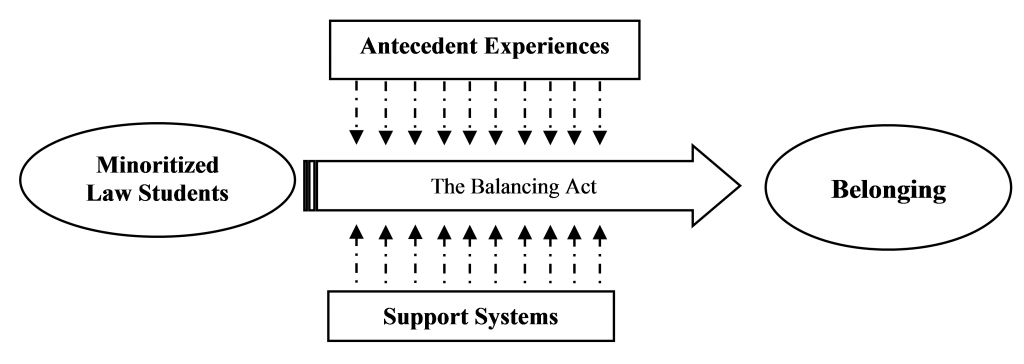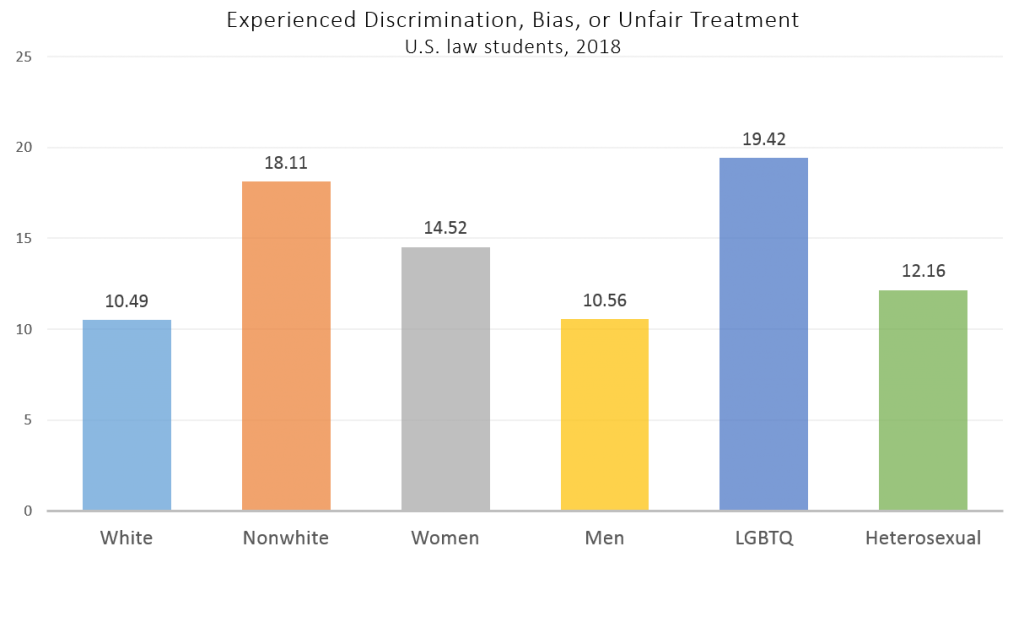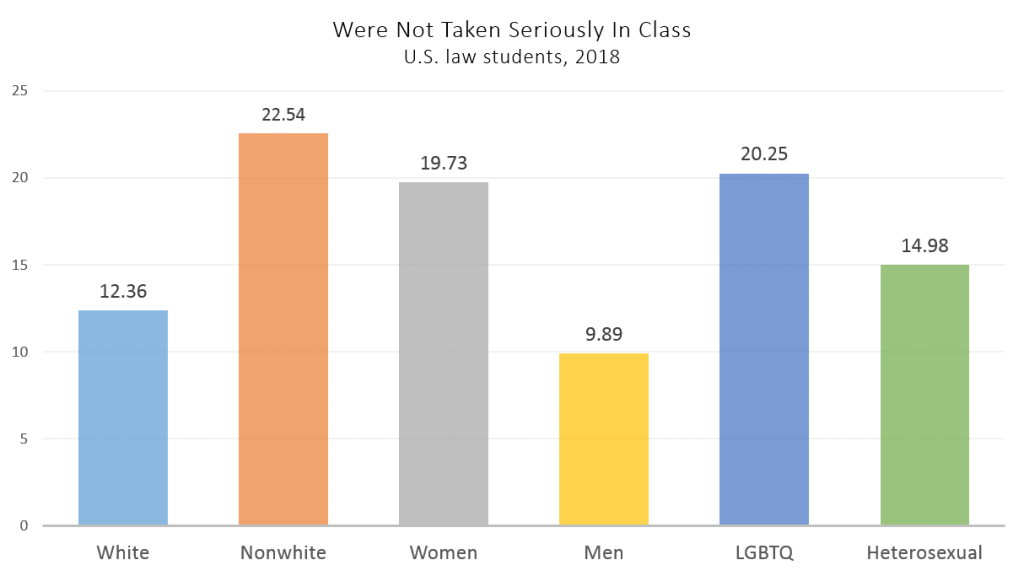Guest Post By Elizabeth Bodamer, J.D.
Director of Student Affairs, Indiana University Maurer School of Law
PhD Candidate, Indiana University Bloomington Department of Sociology
 As a graduate student, I am very fortunate to have the opportunity to work with LSSSE and other collaborators to explore in-depth the student experience in American law schools today. Last month, Professor Quintanilla shared the LSSSE data finding that the quality of relationships with faculty, staff, and students predicts students’ sense of belonging. Moreover, the data showed that belonging predicts students’ academic performance. Building upon this research, my dissertation will look at the antecedent experiences that affect belonging in law school.
As a graduate student, I am very fortunate to have the opportunity to work with LSSSE and other collaborators to explore in-depth the student experience in American law schools today. Last month, Professor Quintanilla shared the LSSSE data finding that the quality of relationships with faculty, staff, and students predicts students’ sense of belonging. Moreover, the data showed that belonging predicts students’ academic performance. Building upon this research, my dissertation will look at the antecedent experiences that affect belonging in law school.
In my dissertation, I argue that minoritized students must perform a balancing act as they navigate their way through school environments and negotiate their sense of belonging in law school. I suspect that the balancing act will be seen when the effects of negative experiences and perceptions are counteracted by students’ support systems. As students are pulled negatively one way, their support system pushes them back up on the law school balance beam. They teeter between their negative experiences and perceptions and their support systems.

Preliminary findings illustrate that student experiences in law school vary by race/ethnicity, gender, and sexual orientation. For example, students from 20 law schools were asked to indicate how strongly they agree or disagree with the following statement: “I have experienced bias, discrimination, or unfair treatment at my law school based on my race/ethnicity, gender, gender identity, and/or sexual orientation.” 19.42% of students who identified as gay, lesbian, bisexual, another, and/or questioning and 18.11 % of nonwhite students reported having experienced bias, discrimination, or unfair treatment at their law school. This is almost double of what white students (10.49%) and male students (10.56%) reported.

A similar pattern is seen when students were asked to indicate how strongly they agree or disagree with the following statement: “I experienced not being taken seriously in a class because of my race/ethnicity, gender, gender identity, and/or sexual orientation.” 22.54% of nonwhite students, 19.73% of women, and 20.25% of students who identified as gay, lesbian, bisexual, another, and/or questioning reported not being taken in class. 9.89% of male students and 12.36% of white students reported having not been taken seriously in class. Compared to white and male students, significantly more minoritized law students reported not being taken seriously in a class because of their race/ethnicity, gender, gender identity, and/or sexual orientation.

Why does this matter? Higher education literature shows that peer support, social and academic interaction, perceived racial tension, relationships, friendships, a solid support system, and climate affect students’ sense of belonging (Green et al. 2018; Murphy and Zirkel 2015; Freeman, Anderman, and Jensen 2007; Pittman and Richmond 2008; Hausmann et al. 2007; Hurtado and Carter 2007; Cabrera et al. 1999). It is important not to simply understand that experiences vary based on race/ethnicity, gender, and sexual orientation, but to explore if and how these experiences have a direct effect on belonging, and consequentially on students’ performance. Examining the student experience is crucial because as Duncan Kennedy said, “One cannot grasp the political significance of legal education without understanding that the future is present within every moment of a student’s experience.”
I look forward to continuing my work with the LSSSE dataset as I analyze how negative experiences and perceptions, such as discrimination experiences, perception of how students are perceived, and perception of school’s commitment to diversity, and support systems directly affect belonging in legal education.
Happy 15-year anniversary, LSSSE!
* Dissertation Committee: Dr. Ethan Michelson, chair (Indiana University Bloomington), Dr. Jennifer Lee (Indiana University Bloomington), Dr. Sylvia Martinez (Indiana University Bloomington), and Victor Quintanilla (Indiana University Maurer School of Law).
**One of the many challenges graduate students face in doing research is finding the data necessary to answer their research questions. However, collaborating with LSSSE has allowed me to collect the necessary data to explore the overarching question, what affects law students’ sense of belonging. For this, I would like to thank the LSSSE dream team, Chad, Jakki, and Meera, for working with me to make this dissertation data possible.
